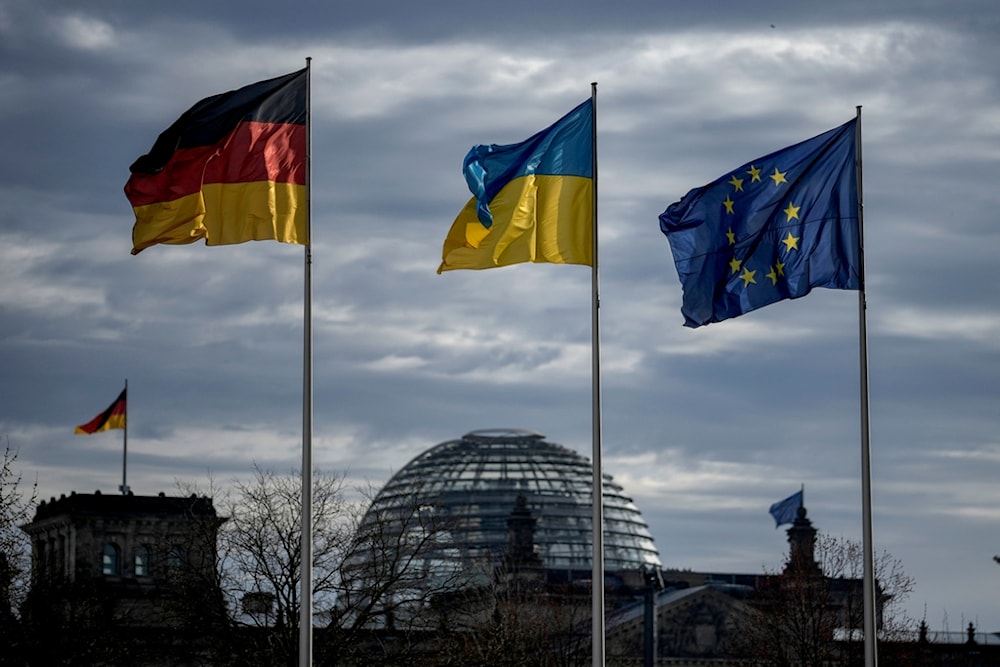German, EU support for Ukraine driven by strategic interests: Habeck
The minister further advocated for bolstering the defense capabilities of both the EU and NATO to a level where no one would "dare to attack".
-

A German, Ukrainian and European flag wave in front of the Reichstag building in Berlin, Germany, Friday, Feb.16, 2024. (AP)
German Economy Minister Robert Habeck said on Friday that his coutry's support for Ukraine extends beyond solidarity, as it aligns with both its own interests and those of Europe. With no imminent "quick and good" resolution to the conflict in sight, this backing remains crucial.
"We support Ukraine not only out of solidarity and sympathy but also in the interests of Germany and Europe. We seek peace, yes. But the honest, bitter answer is: there will probably not be a quick and good end," Habeck said in a video message posted on his ministry's X account.
The minister emphasized support for Germany's continued provision of military aid to Ukraine while maintaining a stance of non-involvement in direct hostilities.
"We, especially the members of the government, must constantly be mindful of the question as to where is the line the crossing of which would drag Germany into war," Habeck said.
Vizekanzler #Habeck zu Ostern: Ein echter Frieden ist ein Frieden in Freiheit. pic.twitter.com/3FcMH4kWTt
— Bundesministerium für Wirtschaft und Klimaschutz (@BMWK) March 29, 2024
The minister further advocated for bolstering the defense capabilities of both the EU and NATO to a level where any potential aggressor would be deterred from attacking. He underscored that enhancing defense capacity is not only imperative but also a significant political objective.
Read more: Germany's economy to worsen in 2024
Two years into the war in Ukraine, discussions on a potential peace deal involving the withdrawal of Russian troops in exchange for retaining territory have begun to pick up speed. The costs of this war were paramount for both the West and Russia, but particularly for the EU. The de-industrialization accompanying sanctions on Russia has resulted in disastrous outcomes for the Euro economy, pushing millions into financial insecurity, while the bloc grapples with efforts to restore economic growth.
Germany was the only G7 economy that fell last year. Most commentators blamed the poor performance on the energy crisis that erupted following the war in Ukraine. Germany's industry-intensive economy suffered a heavy blow and entered a recession.

 2 Min Read
2 Min Read









